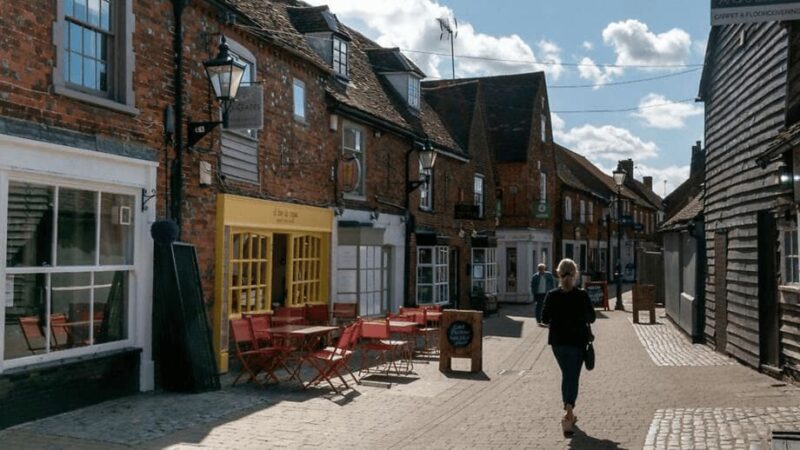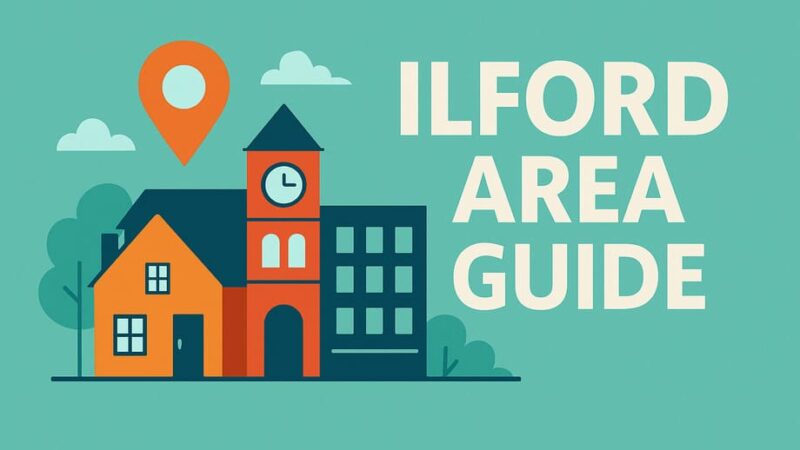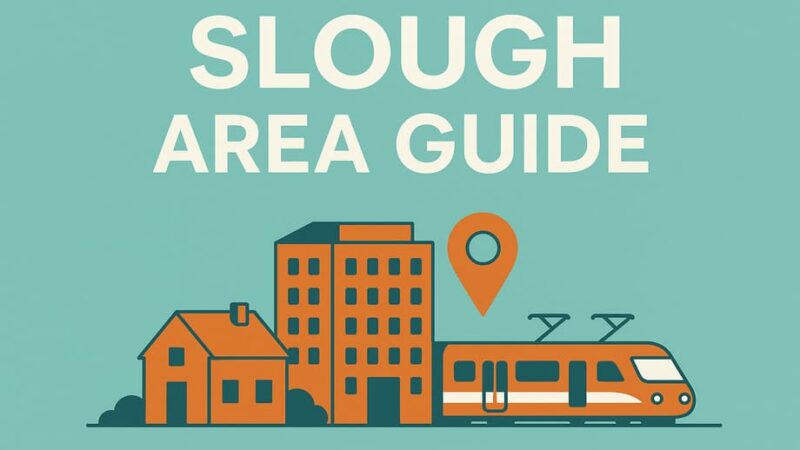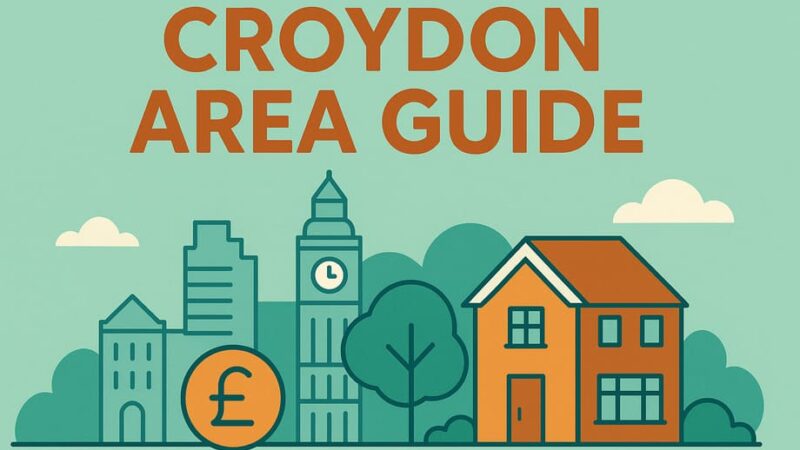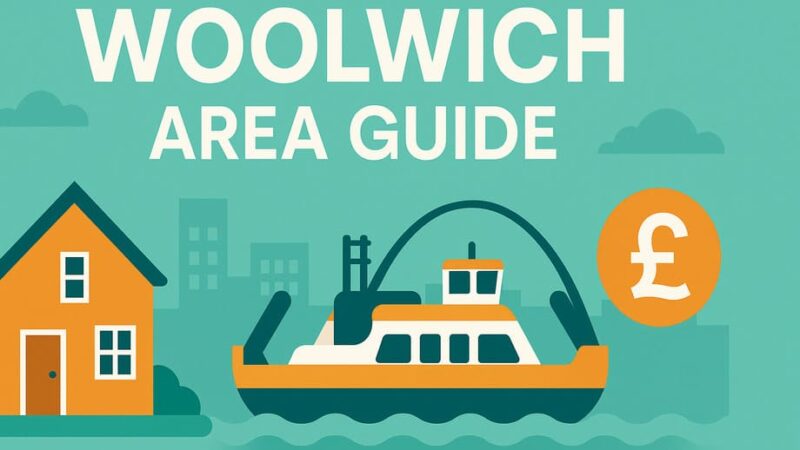Living in Luton – The Honest Guide
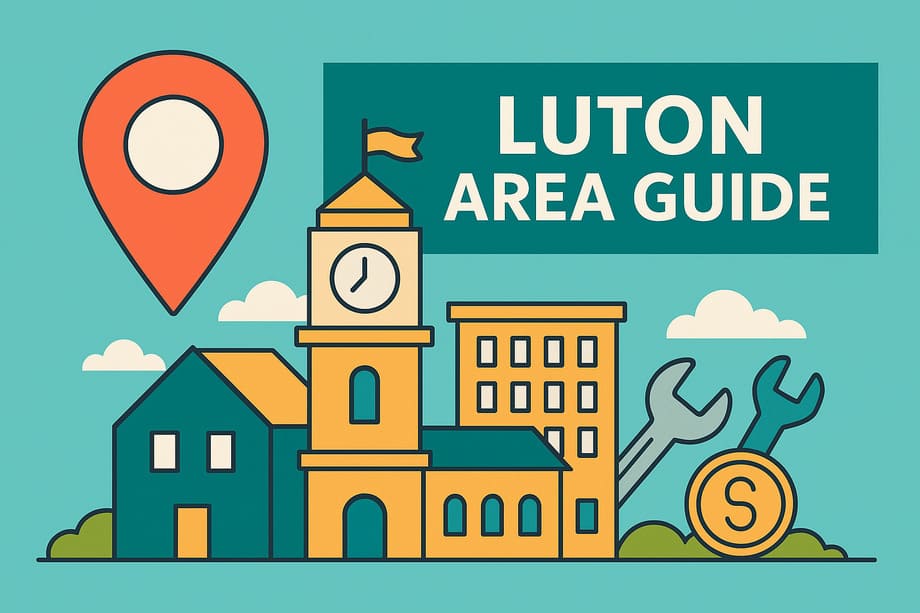
When people hear “Luton,” reactions tend to be mixed. Some think immediately of the airport, others of its multicultural vibrancy, while many still hold outdated perceptions of a struggling industrial town. But what’s the reality of living in Luton in 2025? This honest guide cuts through the stereotypes to give you the full picture of life in one of Bedfordshire’s most diverse communities.
Luton is undergoing significant transformation. With major regeneration projects, excellent transport links to London, and genuine affordability compared to surrounding areas, it’s attracting new residents who see past the reputation to discover a town with real character and opportunity. But is it right for you?
Overview of Luton
Reputation vs Reality
Luton’s reputation often precedes it – and not always fairly. Yes, it’s an industrial town that grew rapidly in the 20th century, primarily known for hat-making and later the Vauxhall car plant. The airport brings both benefits and challenges. But the reality of modern Luton is far more nuanced than its stereotypes suggest.
The Reality: Luton is a large town and unitary authority area of Bedfordshire with a population of 258,000 people, making it the largest town in Bedfordshire. It has a rich history and an interesting culture, with global people forming a close-knit and strong community over the years.
Location advantages are significant. Luton is on the River Lea, 32 miles (50 km) north-west of London, 18 miles (29 km) north-west of Hertford, 20 miles (32 km) south of Bedford and 23 miles (37 km) south-east of Milton Keynes. This strategic position provides excellent connectivity while maintaining more affordable living costs than southern commuter towns.
The transformation story is ongoing. With impressive house price rises, large scale regeneration plans, ideal location and excellent commuter connections, Luton is an excellent prospect for those looking for new homes. Major investment in infrastructure, education, and cultural facilities is reshaping the town’s identity.
Who chooses Luton? The town attracts a diverse mix: young professionals seeking affordable first homes, London commuters wanting better value, international families drawn to the multicultural community, and students attending the University of Bedfordshire. Luton is a student city with many international students; it is affordable, has excellent transportation links, and the best universities.
The challenge lies in separating perception from reality. While Luton faces urban challenges common to any large town, it also offers genuine opportunities, strong communities, and excellent value that many comparable areas simply can’t match.
Housing & Rent Prices
Flats & Houses
Housing costs in Luton represent one of its strongest selling points for those priced out of London and the Home Counties. Consumer Prices Including rent in Luton are 33.39% lower than in London, with Rent Prices in Luton 56.12% lower than in London.
Current property prices (2025):
- The provisional average house price in Luton in May 2025 was £285,000, up from £273,000 in May 2024, representing a 4.1% rise.
- The provisional average price paid by first-time buyers was £268,000 in May 2025, up from £258,000 in May 2024.
- Home-movers paid an average of £324,000 in May 2025.
By property type (average sales prices):
- Semi-detached properties: £299,787
- Terraced properties: £248,381
- Detached properties: £419,673
Rental market offers significant savings compared to London:
- 1 bedroom city centre apartment rental – Luton: £742, London: £1732
- 3 bedroom city centre apartment rental: Luton: £1271, London: £3429
Student accommodation is particularly affordable: The cost of student housing ranges between £500 to £850 per month, with on-campus options averaging £1183 and off-campus £1255 monthly.
Affordable Areas
Luton’s housing market varies significantly by location, offering options for different budgets and preferences.
Most affordable areas include:
- LU1 2 postcode: The most affordable place with an average price of £159k
- Bury Park and High Town: Traditional areas with terraced housing, strong community feel, excellent for first-time buyers
- Farley Hill and Stopsley: Family areas with good school access and transport links
Mid-range options:
- Town centre apartments: Modern developments, convenient for transport, popular with young professionals
- Limbury and Bramingham: Suburban feel with good amenities, family-friendly
Premium areas:
- LU6 2 postcode: The most expensive place at £570k average
- Areas near good schools: Properties in catchments for outstanding schools command premium prices
- New developments: Modern housing estates with contemporary amenities
Rental variation is significant: There’s a 1 bedroom flat for rent in Chapel Street for £480/month (£111/week), while at the other end there’s a 1 bed flat in Dumfries Street priced at £2253/month (£520/week).
The key advantage is choice – Luton offers housing options across all price ranges, with even the premium areas remaining significantly more affordable than equivalent locations closer to London.
Transport Links
London Luton Airport
Living near London Luton Airport brings both advantages and considerations. The airport is one of London’s major gateways, offering extensive European and international connections.
Benefits of airport proximity:
- International travel: Direct flights to over 100 destinations across Europe, North Africa, and beyond
- Employment opportunities: The airport and related businesses employ thousands locally
- Economic impact: Significant investment in local infrastructure and services
Transport to/from the airport is efficient: The Luton DART shuttle runs 24 hours a day and takes just four minutes to travel from the airport terminal to Luton Airport Parkway station. After taking the DART, you can catch direct trains from Luton Airport Parkway to London St Pancras International.
Considerations:
- Noise: Aircraft noise affects some residential areas, particularly flight paths
- Traffic: Airport traffic can increase congestion during peak periods
- Parking: Airport parking restrictions affect some surrounding streets
For international professionals, the airport proximity is often a decisive factor, providing convenient access to business destinations and home countries.
Train to London
Luton’s train connections to London are excellent and improving, making it a viable commuter option.
Journey times to key London stations:
- St Pancras: The fastest journey time is 24 minutes, with average journey time of 49 minutes
- London Bridge: Average journey of 50 minutes, fastest 48 minutes
- From the airport to London St Pancras: As little as 32 minutes via Luton Airport Parkway
Service frequency is strong: Around 588 direct trains from Luton to London each day, with around 806 total services including connecting trains. 94 services run from Luton to London Bridge today, with first train at 04:41 and last at 22:44.
Cost of commuting:
- Train tickets from Luton to London can start from as little as $4.80 when booked in advance
- Adults: £24.10 for an ‘Anytime single’ paper ticket, £19.30 for a ‘Super Off-Peak Single’
- Contactless fares: £12.30 off-peak or £16.60 peak
Multiple operators serve Luton: You’ll jump on either an East Midlands Railway or Thameslink train at Luton station. Services connect to various London termini, providing flexibility for different destinations.
Peak hours see excellent frequency: 40-minute average train journey with trains every 10 minutes on average at peak times, making Luton a realistic option for London commuters seeking affordable housing.
Schools & Education
Primary/Secondary
Education in Luton shows a mixed picture, with some excellent schools alongside others requiring improvement. The top ranked schools in Luton are Denbigh Primary School, Foxdell Infant School, and Waulud Primary School.
Outstanding primary schools include:
- Someries Infant School and Early Childhood Education Centre: Rating Outstanding (latest report January 18, 2021)
- Crawley Green Infant School: Rating Outstanding (latest report June 25, 2013)
- Hillborough Junior School: Rating Outstanding (latest report February 10, 2010)
- Lady Zia Wernher School: Rating Outstanding (latest report July 5, 2018)
- Leagrave Primary School: Rating Outstanding (latest report December 11, 2018)
Good primary schools are numerous: Beech Hill Community Primary School, Beechwood Primary School, Bramingham Primary School, Bushmead Primary School, and many others rated Good by Ofsted.
Secondary education challenges and successes:
- Cardinal Newman Catholic School A Specialist Science College is the largest school in Luton with 1,623 pupils
- Denbigh High and Challney High School for Girls are among the favourite secondary schools in the area
Academic performance indicators:
- In Luton schools, 7.03% of pupils strong pass in reading, writing & maths versus the England average of 7.42%
- 34.61% of pupils in Luton achieved 5 or more grades in GCSEs 2023 as compared with England average of 30.02%
- At KS2 level, 61% of pupils in Luton are meeting the expected standard. At KS4 level overall in Luton, 94% of students are staying in education or entering employment
Key considerations:
- School choice: Research individual schools carefully as quality varies significantly
- Catchment areas: Some excellent schools have competitive admission criteria
- Improvement trajectory: Many schools show positive trends under new leadership
College Options
Higher education opportunities in and around Luton cater to diverse needs and career paths.
University of Bedfordshire is the primary local institution: The University of Bedfordshire earned a place in the World University Rankings, claiming the 67th spot out of 130 UK universities. According to World University Rankings, the University of Bedfordshire is in the 601 to 800 category of best universities in the world.
Course offerings include:
- Business and management programs
- Health and social care
- Education and teacher training
- Creative arts and media
- Sport and exercise science
- Engineering and technology
Student life in Luton: Luton is a great place to study with a multicultural population and students from all over the world. With just 23 minutes of train ride to London, you will never miss the entertainment life in the UK.
Alternative options nearby:
- Further education colleges: Barnfield College and other providers offer vocational training
- London universities: Easy commute to numerous London institutions
- Open University: Distance learning options for flexible study
- Professional training: Many international companies in Luton offer apprenticeships and graduate programs
Cost advantages: The cost of living in Luton is £1000/month excluding tuition fees, far more affordable than London even though it’s only half an hour’s journey from the capital.
Job Market & Local Economy
Logistics Hub
Luton’s strategic location and transport connections have made it a major logistics and distribution center for the UK.
Strategic advantages:
- Airport connectivity: London Luton Airport drives logistics and cargo operations
- Motorway access: Easy access to M1, M25, and A1 for national distribution
- London proximity: 30-40 minutes from central London markets
- Skilled workforce: Large, diverse population with multilingual capabilities
Major logistics employers include:
- Airport-related logistics: Cargo handling, freight forwarding, customs services
- E-commerce fulfillment: Amazon and other online retailers have significant operations
- Traditional distribution: National retailers and manufacturers use Luton as a distribution hub
- Automotive logistics: Historic connections to car industry continue
Employment opportunities in logistics:
- Entry level: Warehouse operatives, drivers, customer service roles
- Skilled positions: Logistics coordinators, supply chain analysts, customs specialists
- Management roles: Operations managers, regional directors, business development
- Technical roles: IT systems, automation, data analysis
Salary ranges in logistics:
- Entry level: £18,000-£25,000
- Experienced operatives: £25,000-£35,000
- Supervisory roles: £30,000-£45,000
- Management positions: £40,000-£70,000+
The sector offers genuine career progression opportunities, with many international companies providing training and development programs.
Small Businesses
Luton’s multicultural population and strategic location create excellent conditions for small business development.
Thriving sectors include:
- Retail and hospitality: Diverse dining scene, specialty shops, cultural businesses
- Professional services: Accounting, legal, consulting serving local businesses
- Construction and trades: Supporting ongoing regeneration and development
- Health and beauty: Salons, clinics, wellness services reflecting cultural diversity
- Technology and digital: Growing startup scene, digital marketing, e-commerce
Business support ecosystem:
- Luton Council business support: Grants, advice, and networking opportunities
- Enterprise zones: Designated areas with business rate relief and support
- University partnerships: Collaboration opportunities with University of Bedfordshire
- Community networks: Strong ethnic business associations and chambers of commerce
Market advantages:
- Diverse customer base: Large, multicultural population with varied needs
- Lower overheads: Affordable commercial rents compared to London
- Good transport links: Easy access to suppliers and markets
- Skilled workforce: Multilingual staff for international businesses
Startup costs are reasonable:
- Retail units: Town center shops from £15,000-£40,000 annually
- Office space: From £200-£400 per desk per month
- Industrial units: Varied options from small workshops to large warehouses
- Home-based businesses: No restrictions in most residential areas
The combination of diversity, affordability, and connectivity makes Luton attractive for entrepreneurs and small business owners.
Community & Culture
Multicultural Life
Luton’s greatest strength is arguably its cultural diversity, creating a vibrant, inclusive community that welcomes people from all backgrounds.
Cultural composition: The diversity of pupil ethnicity in Luton is crucial for fostering an inclusive and enriching educational experience. Interacting with peers from different ethnic backgrounds promotes cultural understanding, empathy, and appreciation for diversity.
Established communities include:
- South Asian: Large Pakistani, Bangladeshi, and Indian communities
- African and Caribbean: Significant populations from various African countries and Caribbean islands
- Eastern European: Growing Polish, Romanian, and other Eastern European communities
- Middle Eastern: Iraqi, Syrian, Turkish, and other communities
- Traditional British: Long-established local families maintaining town heritage
Cultural amenities reflect this diversity:
- Places of worship: Mosques, churches, gurdwaras, and temples serving all faiths
- Community centers: Venues for cultural events, language classes, and social gatherings
- Specialist shops: International groceries, clothing, and services
- Cultural associations: Organizations supporting specific communities and traditions
Language diversity: Luton has a wide selection of restaurants serving up cuisines from all over the globe owing to its multicultural people. Some of the choicest restaurants in the town are Monna Lisa and La Trattoria, both serving Italian food and Al Quds which serves delicious Middle Eastern fare.
Integration success: What makes Luton special is how well different communities integrate while maintaining their distinct identities. Children grow up multilingual and multicultural, creating a generation comfortable with diversity.
Festivals & Events
Luton’s festival calendar showcases its cultural richness and community spirit throughout the year.
Luton International Carnival is the headline event: Set to take place on Sunday 25 May 2025 from 12pm to 6pm, this year’s theme is ‘Back to the Future’. This spectacular event marks the 49th anniversary of this beloved celebration and has evolved into one of the most anticipated events in the town.
Carnival highlights:
- Approximately 800 participants ready to strut their stuff, with bands from all over the UK including Mas Africa from London, Zodiac All Stars from Nottingham, Original Step Performers from Leicester
- The event typically takes place in the town center, transforming the streets into a vibrant tapestry of cultural displays and festive energy
- Costumes created from recycled materials, environmentally friendly electric-powered sound systems, creating a model for how festivals can thrive whilst protecting our planet
Desi Fest celebrates South Asian culture: Desi Fest Luton is a spectacular, award-winning, annual 2-day celebration of arts, creativity and community. It highlights, engages and showcases Luton and Bedfordshire’s South Asian diaspora communities and brings leading UK and international artists to the town. Desi Fest attracts well over 25,000 people over the 2 days, with audiences reflecting the diverse multi-cultural nature of Luton.
Year-round events include:
- Cultural festivals: Eid celebrations, Diwali, Caribbean heritage events
- Music events: Steel pan performances, traditional music concerts
- Food festivals: Celebrating international cuisines and local producers
- Community celebrations: Local history events, seasonal festivals
Community participation is high: It’s just one of over 40 free family events that happen all year round in Luton, bringing communities to our town centre in a safe, family-friendly atmosphere.
The festival calendar creates regular opportunities for communities to come together, celebrate their heritage, and share traditions with others.
Pros & Cons
PROS:
Exceptional Value for Money: Cost of living in Luton is 38% cheaper than London, with housing particularly affordable at 56% less than London prices. This represents genuine savings that make homeownership and comfortable living achievable.
Excellent Transport Links: Direct trains to London in under 30 minutes, extensive bus networks, and proximity to multiple airports make Luton extremely well-connected for both work and leisure.
Cultural Diversity and Community: The multicultural environment creates a rich, tolerant community where different cultures coexist and thrive. Excellent international food scene and cultural events year-round.
London Access Without London Costs: With just 23 minutes of train ride to London, you will never miss the entertainment life in the UK, while enjoying significantly lower living costs.
Employment Opportunities: Major logistics hub with opportunities across skill levels, plus growing small business ecosystem and proximity to London job market.
Educational Options: University of Bedfordshire provides local higher education, several outstanding primary schools, and good secondary options for families.
Regeneration Momentum: Large scale regeneration plans, ideal location and excellent commuter connections suggest continued improvement and investment.
CONS:
Reputation and Perception: Luton still battles negative stereotypes that may affect social perceptions and future resale values, despite ongoing improvements.
Airport Noise and Traffic: Living near a major airport brings noise pollution and increased traffic congestion, affecting quality of life for some residents.
Limited Nightlife and Entertainment: While improving, Luton lacks the sophisticated nightlife and cultural venues of larger cities, requiring travel to London for premium entertainment.
Educational Inconsistency: While some schools excel, educational quality varies significantly, with some requiring improvement ratings.
Urban Challenges: Higher crime rates in some areas, traffic congestion, and typical urban issues that come with a large, diverse population.
Limited Green Space: While there are parks like Wardown Park and access to countryside areas, central Luton has limited green space compared to more rural alternatives.
Car Dependency: While public transport to London is excellent, local transport and access to amenities often requires car ownership, adding to living costs.
Should You Move to Luton?
The decision to move to Luton depends heavily on your personal priorities, life stage, and tolerance for urban trade-offs versus suburban benefits.
Luton is ideal if you:
- Value affordability above all: Need homeownership opportunities or significant rental savings
- Commute to London: Want reasonable journey times without London housing costs
- Appreciate cultural diversity: Thrive in multicultural environments with international communities
- Are starting out professionally: Need affordable base while building career in London/Southeast
- Work in logistics/airport industries: Benefit from proximity to major employment centers
- Are an international professional: Value airport access and multicultural community support
Consider alternatives if you:
- Prioritize prestige and status: Care significantly about address perception and social status
- Seek rural tranquility: Want countryside living with minimal urban challenges
- Need extensive cultural amenities: Require sophisticated nightlife, arts venues, fine dining locally
- Have school-age children: Unless you can access the outstanding schools, educational options may disappoint
- Are sensitive to noise: Airport and urban noise may significantly impact quality of life
- Want immediate perfection: Prefer established, polished areas over places undergoing regeneration
The verdict: Luton has its own distinct personality and can be a desirable area to live in for some people, providing a combination of facilities, transport options, and accessibility.
Luton in 2025 represents genuine value and opportunity for those who can see past its rough edges to appreciate its substantial advantages. It’s particularly suited to practical, budget-conscious individuals and families who prioritize affordability, diversity, and connectivity over aesthetic perfection.
For first-time buyers and London commuters, Luton offers an achievable path to homeownership and comfortable living that simply isn’t available in more prestigious areas.
For international families and diverse communities, Luton provides a welcoming environment where different cultures are not just tolerated but celebrated.
For entrepreneurs and small business owners, the combination of low costs, diverse markets, and excellent transport links creates genuine opportunities.
The key is approaching Luton with realistic expectations. It’s not trying to be Windsor or St Albans – it’s aiming to be the best version of itself: an affordable, diverse, well-connected town that offers real value and genuine community to those who choose to call it home.
If you value practical benefits over prestige, and opportunity over immediate polish, Luton deserves serious consideration in 2025.
Last Updated on August 29, 2025 by James Cartwright


